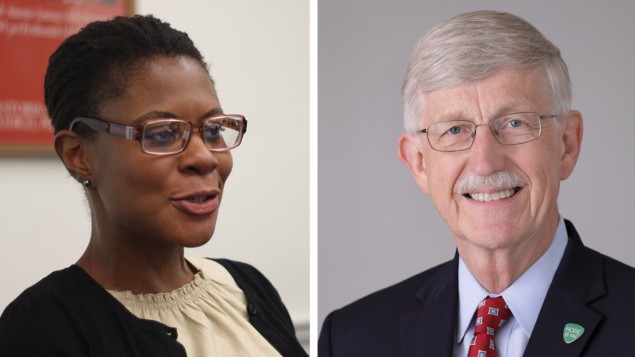
US president Joe Biden has responded to the recent resignation of his science adviser Eric Lander by controversially splitting Lander’s former job into two. Lander had quit earlier this month following an investigation that found “credible evidence” he had mistreated and demeaned staff at the Office of Science and Technology Policy (OSTP).
In a move that has surprised much of the American scientific community, Biden has now appointed Francis Collins, who retired as director of the National Institutes of Health in December, as interim science adviser. Meanwhile, Alondra Nelson, a sociologist who is OSTP’s deputy director for science and society, will head OSTP for now.
In a strongly worded editorial entitled “Biden doesn’t get it”, Science magazine’s editor Holden Thorp asserts that Nelson should have both jobs. Meanwhile, Neal Lane, who was president Bill Clinton’s science adviser, argues that the arrangement could cause bureaucratic confusion.
John Holdren, president Barack Obama’s science adviser, however, thinks that Collins and Nelson will be able to work together, particularly in “domains where Francis is not an expert”.
Toxic work environment
Before becoming director of the OSTP last year, Lander had a successful career co-heading the effort to sequence the human genome, and founding and leading the Broad Institute for genomic research.
As the first presidential science adviser to be a member of the president’s cabinet, Lander headed a new Cancer Moonshot initiative intended to cut cancer’s death rates and had led efforts to create a new Advanced Research Projects Agency for Health to fund potentially significant biomedical advances. He had also played a key role in the administration’s response to tackling COVID-19. US president Joe Biden sets out his science agenda
The investigation into Lander’s conduct, which was prompted by a complaint from OSTP lawyer Rachel Wallace, revealed that Lander had overseen a toxic work environment in which he frequently bullied, cut off and dismissed subordinates.
Scientists with experience in government saw the resignation as inevitable following the findings of the report, which tallied with his reputation as an excessively demanding manager who has little patience with colleagues.
“I am devastated that I caused hurt to past and present colleagues by the way in which I have spoken to them,” Lander wrote in his resignation letter. “That was never my intention. Nonetheless, it is my fault and my responsibility.”
The American Association for the Advancement of Science also withdrew Lander’s invitation to speak at its annual meeting, which was held over the weekend. “OSTP should be a model for a respectful and positive workplace for the scientific community,” the organization noted in a statement.




